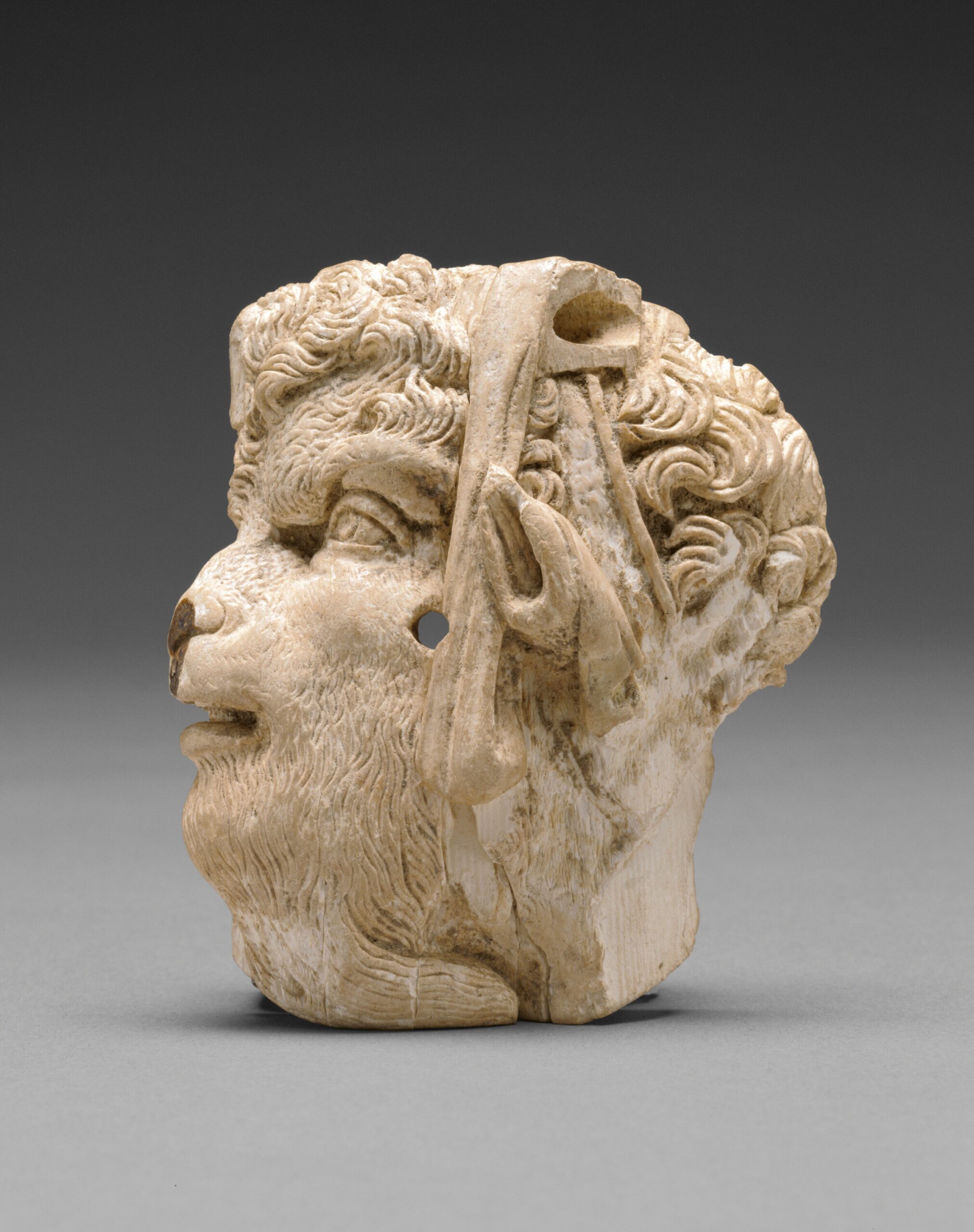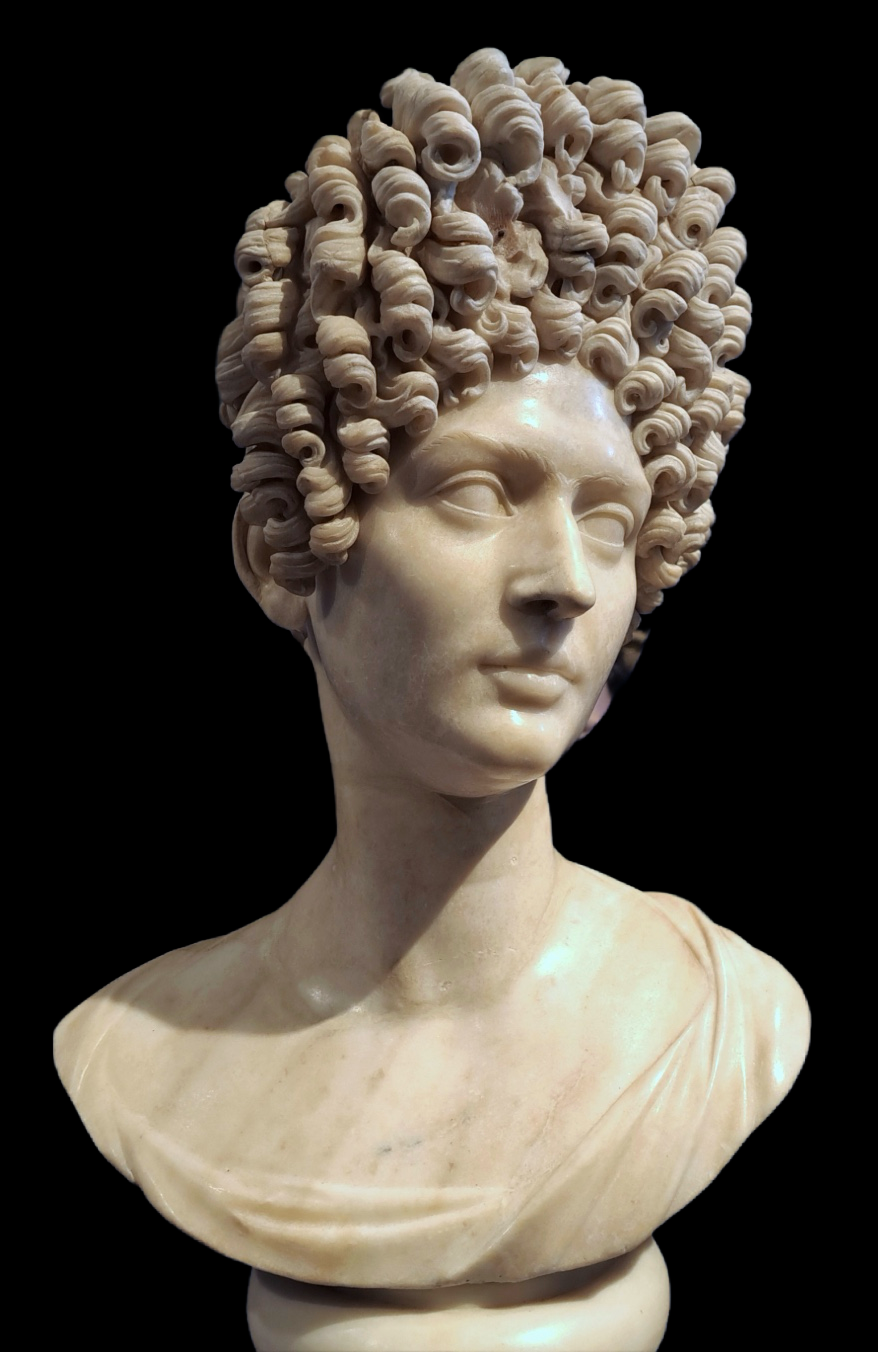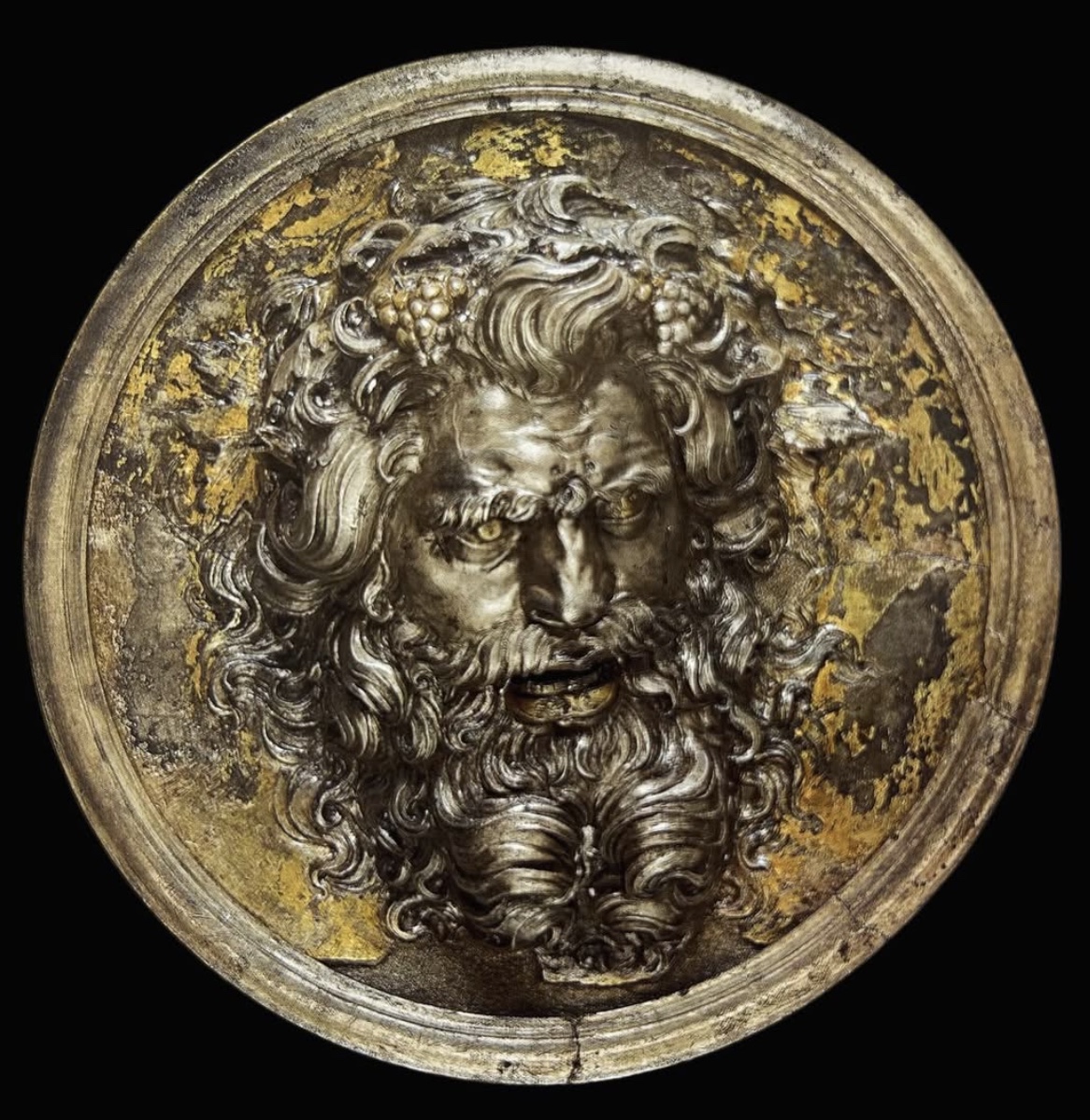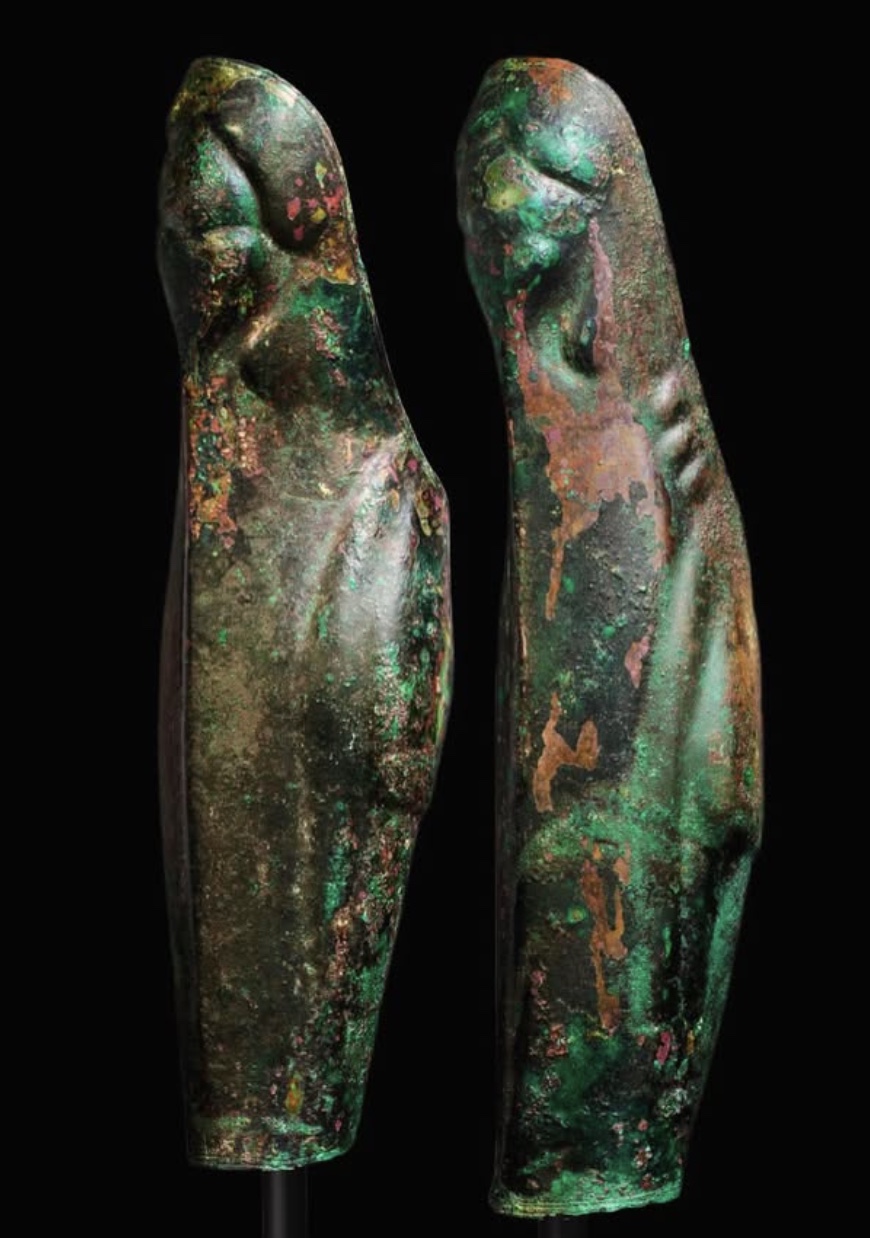In an impressive feat of artistry and imagination, this little (6.9 centimetres tall) ivory appliqué grafts a delightfully human, puckish expression onto the hairy caprid face of Pan.
The half-goat, half man Pan was the god of wilderness, wildness, shepherds, and rustic revelry – he lurked in the unpopulated mountain regions of Arcadia, famously pursuing nymphs (and the occasional hapless goat) with an outsized libido. His worship in Greece was different from the Olympian deities and likely much earlier. Rather than organised, monumentalised sanctuaries, he was instead celebrated in grottoes and caves (including a little one on the Athenian Akropolis’ northern slope).
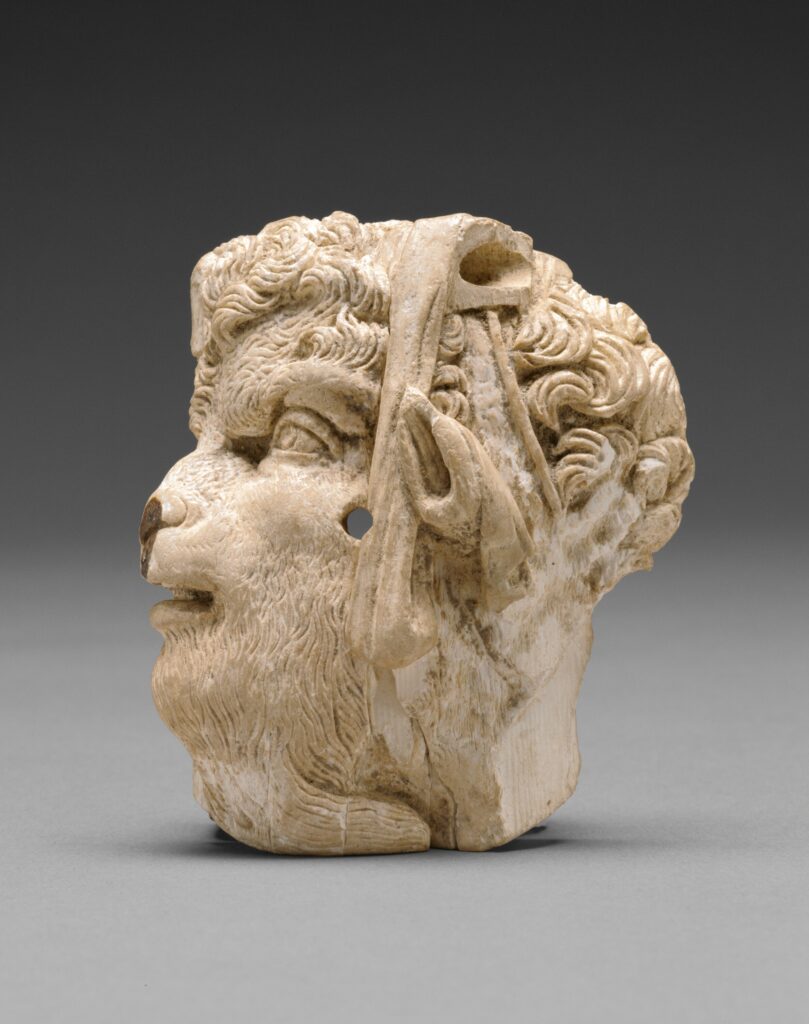
Appliqué with the Head of Pan. Hellenistic, ca. 100 B.C. Ivory (likely elephant), 8.9 × 7.6 × 2.7 cm. Formerly with the Acanthus Gallery (New York, NY), sold to the J. Paul Getty Museum, 1987. (inv. no. 87.AI.18)
This little plaque shows the god in a festive mood, a diadem draped over a horn above a pointy ear (how do goats wear headbands, anyway?), his lips parted so show a line of teeth, and that heavy lidded eye gazing mischievously upward – one can practically see the gears in his head spinning! The different textures of fur and hair are a marvel, with that luxuriant long goatee tucked under his chin.
The circular piercing beneath the eye indicates the head was once pinned on to a larger ensemble – likely ornate, wood-framed furniture, perhaps a very fancy couch. Elephant ivory was one of the premier luxury materials in the Hellenistic period, more available than ever before (both Indian and African varieties) thanks to Alexander’s activities.
Funny, isn’t it, to think of this impish god of natural spaces used to decorate an upper-crust interior, perhaps in one of the new mega-cities of the Hellenistic Kingdoms, teeming with human activity and quite far from his rugged haunts.

